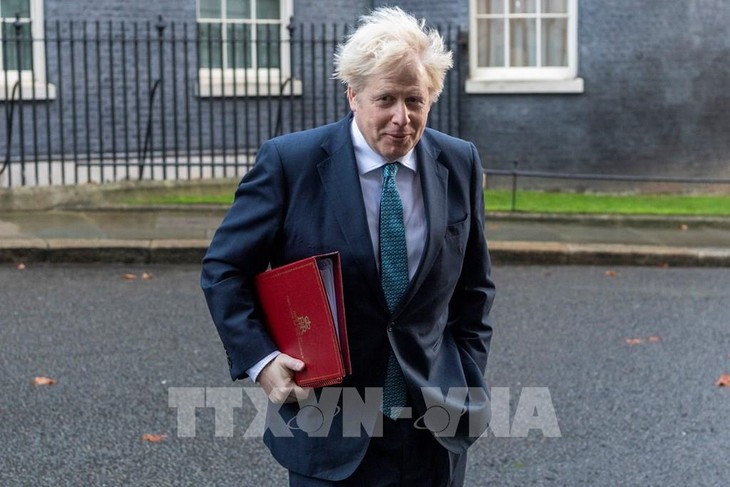(VOVWORLD) - Britain will hold the presidency of the G7 beginning this month and will host the UN-led 26th Conference of Parties (COP26) on climate change this year. These global events will strengthen Britain’s image now that it has exited the EU.
 British Prime Minister Boris Johnson in London on Dec 15, 2020 (photo: VNA) British Prime Minister Boris Johnson in London on Dec 15, 2020 (photo: VNA) |
Prime Minister Boris Johnson has said 2021 is a very important year for the “global Britain” program, in which he will shift from Brexit issues to a new agenda that includes hosting the G7 Summit and the UN Climate Change Conference.
Strengthening Britain’s role after Brexit
The G7 Summit is scheduled to take place in June, and the COP26 Conference in November. Britain has prepared and set goals for the two global events.
At the G7 Summit, Prime Minister Johnson expects to find global solutions to the COVID-19 pandemic and a roadmap for his “build back better” plan to mobilize global power. He aims to form a new coalition consisting of big economies and create a forum where world leaders can meet face to face following the COVID-19 year.
Johnson will meet with G7 leaders before the Summit to discuss measures to halt the coronavirus pandemic, boost production, distribute vaccines, and draw lessons for future health emergencies.
Johnson sees the G7 Summit as a buffer event for the COP26 in November in Glasgow, where he expects developing countries will further cut emissions. The COP26 will explore technology solutions to slow climate change and minimize its impacts.
Can a “Global Britain” be realized?
After Brexit Britain will expand its external relations, including a free trade agreement with countries in the Pacific Rim. London has already signed a post-Brexit trade deal with Japan, Canada, Singapore, Sweden, Vietnam, and several other countries. Future agreements on its agenda will cover 80% of its trade relations with other countries in 2022.
Despite Britain’s efforts, there has been pressure, particularly financial restraints, forcing Britain to narrow its international activities. Britain has imposed a national COVID-19 lockdown. Last November, Britain reduced international financial support from 0.7% to 0.5% of its GDP.
Territorial integrity is another obstacle to Britain’s ambitions. Northern Ireland, where 56% of the population voted in the 2016 referendum to stay in the EU, has opposed policies of the central government. In Scotland, recent public polls show an increasing number of people want to separate from the UK. If Scotland becomes independent, UK revenues will shrink, forcing the government to further reduce its budget for external affairs and defense, and Britain’s hard and soft power will weaken. Boris Johnson’s plan for a “Global Britain” would appear to have a difficult road ahead.